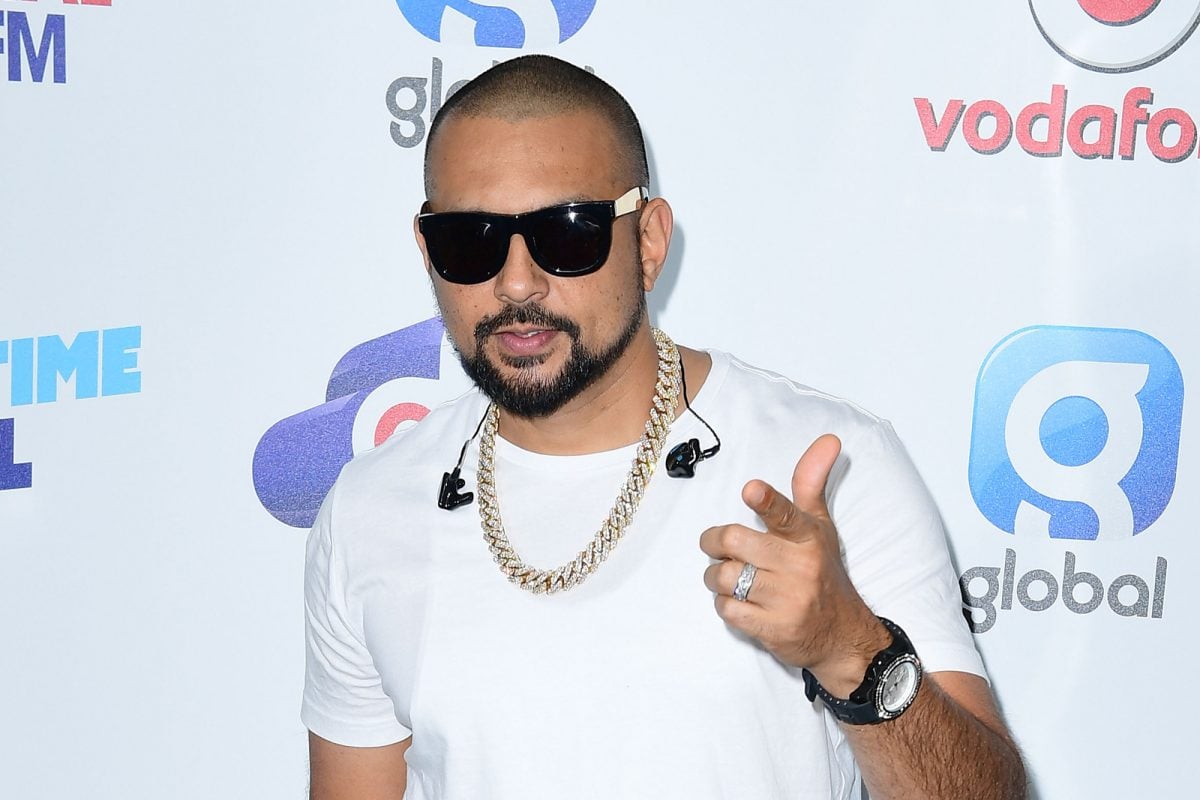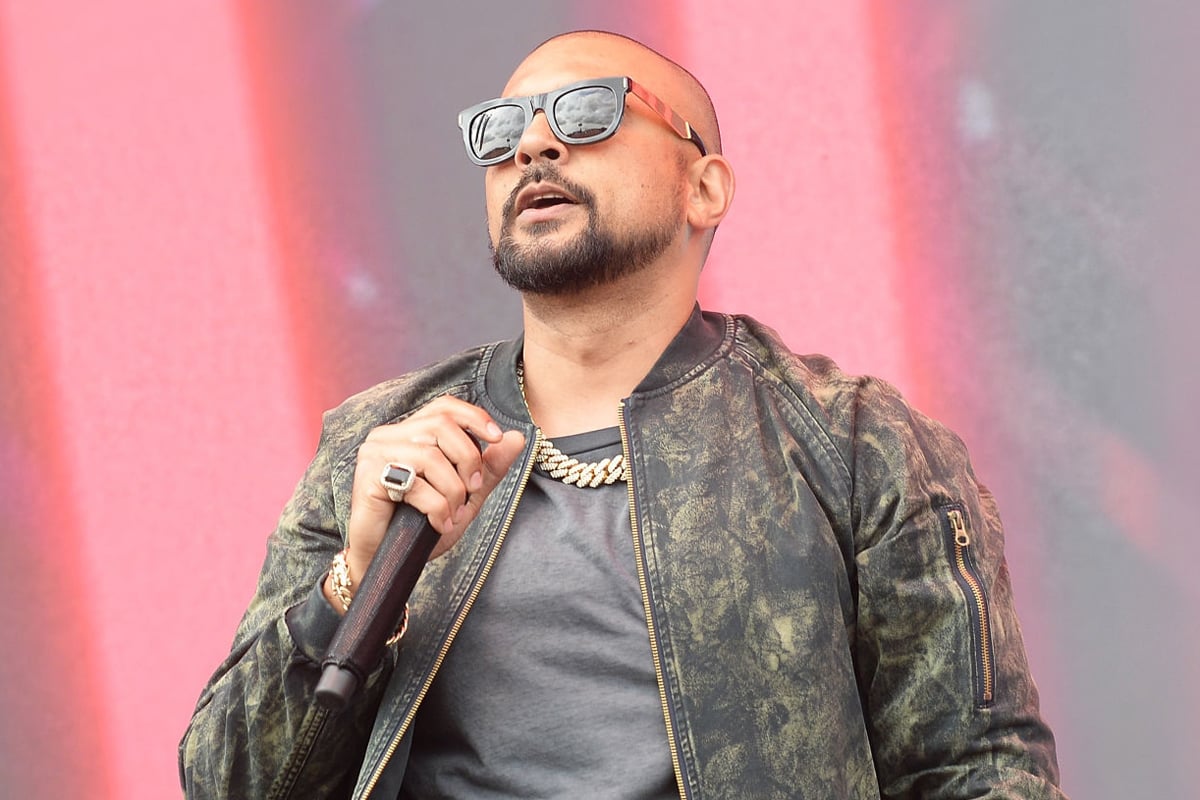Sean Paul Bats For ‘Original Ganja Farmers’

For the second time this year, Sean Paul has made it clear that he is not a fan of the cannabis being sold in dispensaries, as these are way below the caliber of the world acclaimed ganja which is being cultivated by original weed farmers in rural Jamaica.
In an interview with The Independent last week, Sean Paul said that while legal cannabis dispensaries are a good thing, their ganja is not good for smoking, as it tastes like corrugated paper to him.
The Gimme Di Light singer, who is known to apologetically praise ganja in his songs and dedicate entire tracks glorifying the weed, went on to advocate for the original ganja farmers, whom he says are being forced out of the trade by trifling politicians.
“I’ve seen the same politicians and lawyers and doctors that used to say, ‘It’s a maddening thing, it’s going to drive you crazy, it’s a gateway drug, don’t do it’ now turn around and say how beneficial it is. Politicians are taking money from big businessmen and forcing out the real farmers who cultivated the good stuff,” he said.
‘For me, dispensaries are a good thing… but almost all their weed tastes like cardboard,” the St. Andrew native told The Independent.
Sean Paul is also quoted by The Independent as saying that he is about to venture into the legal cannabis business and has seen an opportunity in the market for healthy edibles, a point he had raised in an earlier interview with cannabis magazine High Times, earlier this year.
He also pointed out that the edibles currently on the market are able to help people who are unable to, or do not smoke, but are problematic as the sugar content tends to be very high.
“Edibles can help a lot if a person can’t smoke, but if that person is sick with diabetes then these edibles are gonna kill him because they’re full of sugar!” he explained.
“I’m in the process of trying to make edibles that are more healthy, and for now I’m also developing my own strain of smokes that people can enjoy,” he added.
The Independent interview is the second such since the start of the year, in which Sean Paul has spoken about his sojourn into the legal ganja business.
In an interview in February with cannabis magazine High Times, about ganja-related things and music, Sean Paul had credited ganja for helping to activate his creativity when penning his songs, as according to him, the weed puts him in ‘a euphoric mood’.
“That’s what I like about it—pot is a very creative substance. Even when I sang the song, ‘Gimme the Light,’ I can say that it helped me out a lot..,” he told High Times.
“There are some people who react to marijuana differently but for most of us, it’s been a euphoric expression that gets us in a creative mood—it sets me in as an artist. Even when I’m not being an artist, pot still puts me in a positive mood,” he added.
He also said he had quit ganja-smoking in the mid-2010s, “only eating edibles for five years”, but got back into the practice “with a celebratory spliff”, when his son was born”, then quitting for a brief period in 2020, due to the fact that he is asthmatic consuming only cannabis oil which he made himself. However, he pointed out that he started lighting up his spliffs again, last Christmas.
“There are times when I smoke and other times when I’ll only take edibles. But yeah, the point is, I’m a ganja person…,” he told High Times.

The Wolmer’s High School old boy also expressed grave concern about how the Cannabis Licensing authority-led legal ganja industry was being administered, during the High Times interview.
“The original farmers are getting left out and it’s almost turned into a big conglomerate, which can be good but also bad. The farmers being left out is leading to us—the land of ganja—having a ganja problem. Perhaps this is because more people are buying it, but now we don’t have enough weed to go around, making the situation kind of weird at the moment,” he had said.
He also said that he was willing to work with entrepreneurial-minded people to “edibles into a healthier medicine”.
“So, if the industry wants to holler at me and hear my ideas about these things, I’d love to go into that part of the business with y’all. There are people who need cannabis as medicine and some of them can’t smoke or consume large quantities of sugar on a consistent basis,” he had said.
Sean Paul’s sentiments about the low quality of ganja being sold by dispensaries have been long-expressed by according to Atlanta-based cannabis connoisseur James Burr.
In 2019, Burr told The Gleaner that Rastafarians and their traditional ganja farmer counterparts continue to outperform international cannabis brands that have now established cannabis dispensaries within Jamaica.
At the time Burr said that despite the locations of the dispensaries in prime resort areas and their branding and marketing efforts using influencers and other means, ganja which is grown in open fields by traditional Jamaican farmers continues to “eclipse these brands in terms of quality and potency aspects such as aromatics, smoking pleasure, enjoyment, burnability, and other esoteric elements that come into burning ganja”.
Burr, who is one of the principals of Enlightened Development and Enlightened Cannabis praised the Rastafarian community whom he said have been able to maintain ultra-quality ganja, “compared to the people who have all the tools and the necessary things”.
Burr, who had been travelling across Jamaica since 1994, said that the expertise found within the Rastafarian farming community, especially, was “of immense value to scientists worldwide”.
He also said numerous scientists with PhDs in agriculture as well as cannabis experts have flown great distances to Jamaica to “sit with people in the bush” to be schooled by Jamaican ganja farmers, who, in tending to the plants, spend a lot of time touching them.
He noted as well that the “hands-on, touching-of-the-plant experience is invaluable and that the average Rasta farmer mainly between 35 and 55 years old, who has been growing, curing and working with different strains of ganja and physically working with the plants every day for in most cases 20, 30 years, “basically has a master’s to a PhD in cannabis science”.
Burr had also said that the problem of low-quality ganja in dispensaries was not peculiar to Jamaica as the same thing occurred in 2004 when dispensaries in west Los Angeles in California first came into existence, but that the Ministry of Agriculture ought to “ensure that quality is basis for the operation of any dispensary in the country in order to preserve the island’s reputation as the ultimate ganja destination”.
“When we go out into the country and we are buying stick weed and it is fresh and hasn’t been put into a bag and transported and oxidised, it’s a totally different product than when we find something that has been around for a while… Jamaica has a harsh environment. Two, three weeks of just sitting around in the Jamaican environment is enough to degrade herb, so freshness is definitely key…That is what already distinguishes the Jamaica brand, and that is what they need to get on the global market: quality. Organic, sustainable, socially responsible, premium quality,” Burr had said.
